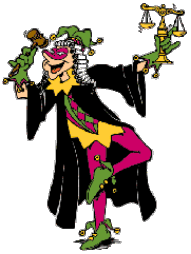April Fool Is Past and Gone, You're the Fool for Carrying On!

There really wasn't a first April Fool's Day, or All Fool's Day, that can be pinpointed on the calendar. Some people think the tradition evolved at about the same time in several cultures in the northern hemisphere, and that it grew out of celebrations for the first day of spring. But the closest point in time that the tradition seems to have been celebrated was in 1582, in France.
In sixteenth-century France, the start of the New Year was observed on April 1st. Beginning on March 25th, there were eight days of New Year celebrations culminating on the first day of the year, April 1st. The New Year was welcomed in pretty much the same way as it is today throughout the world, with parties and dancing into the late hours of the night.
Then in 1562, when King Charles IX ruled France, Pope Gregory introduced a new calendar for the Chri
These folk were regarded as "fools", they were made fun of and tricks and practical jokes were played on them. 
The tradit
April Fool's pranks range from the simple, "Your shoe's untied!" to setting a clock back an hour. Teachers used to say to pupils things like, "Look! A flock of geese!" and point up. School children might tell a classmate that homework has been cancelled. TV even gets involved in the silliness. Once a British news programme showed a detailed film about "spaghetti farmers" and how they harvest
their crop from spaghetti trees. Another time it was announced that the tide had gone out so far the water had disappeared, people flocked to the seashore and to rivers to check if it was true. It is harmless fun and never includes hurting people in any way. At the end of the trick, the trickster usually shouts, "April Fool!"
And to think all this fun began because it was decided to change how time was measured!
